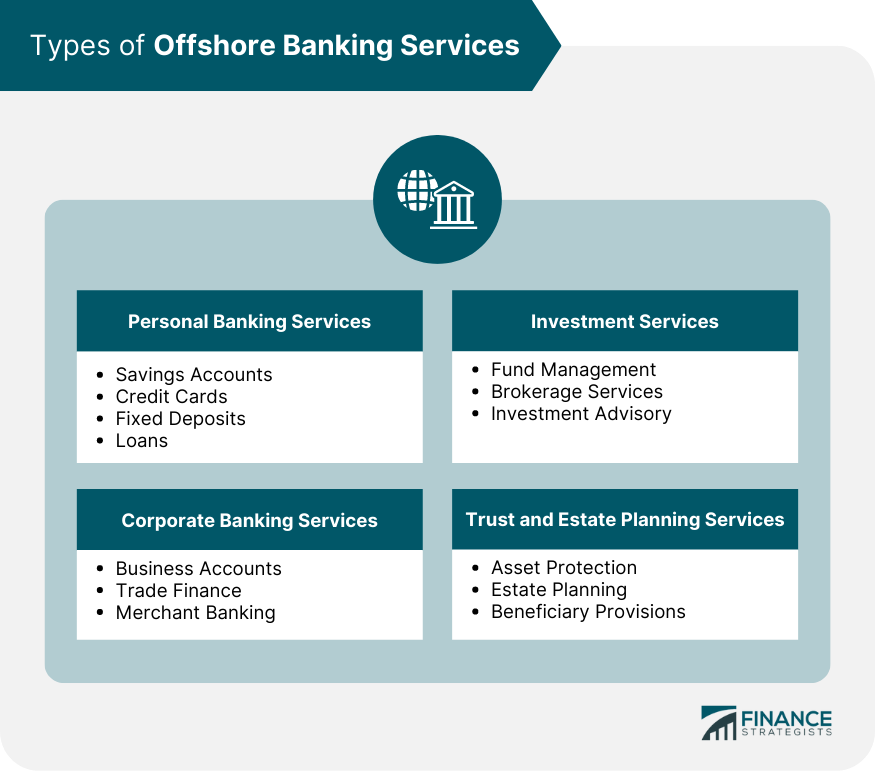Debunking Offshore Firm Formations: Just How They Run and What to Expect
Offshore business formations can seem complex and enigmatic. Offshore Company Formations. These entities, usually established for tax benefits and personal privacy, run under distinct lawful structures. Entrepreneurs might find themselves navigating through a labyrinth of guidelines and compliance demands. Recognizing the complexities is crucial for success. What are the genuine benefits? What are the potential challenges? A closer assessment discloses the nuances that could impact decision-making substantially
Understanding Offshore Firms: Interpretations and Types
Offshore business are entities developed in a territory beyond an individual's or organization's key nation of home, frequently for purposes associated with tax optimization, property defense, or governing benefits. These firms can take different kinds, including minimal obligation companies (LLCs), global company companies (IBCs), and offshore trust funds. Each type offers certain functions and interest various needs.
Minimal obligation firms supply proprietors with protection from individual responsibility, while worldwide organization companies are prominent for their versatility and minimal coverage demands. Offshore depends on, on the various other hand, are made use of largely for estate planning and property defense.
The choice of jurisdiction substantially affects the business's procedures, as some locations supply extra beneficial lawful frameworks and personal privacy securities. Offshore Company Formations. Recognizing the distinctions between these kinds is essential for businesses and individuals considering offshore structures, as each choice lugs various implications for governance and conformity
The Advantages of Developing an Offshore Business
Developing an offshore firm can offer numerous benefits, particularly for those seeking to enhance their economic approaches and protect their assets. One significant advantage is tax obligation optimization; numerous jurisdictions provide positive tax rates or exceptions, enabling services to maintain more profits. Furthermore, offshore companies can provide a layer of privacy, securing the identifications of proprietors and shareholders from public scrutiny.
Another advantage is possession protection. By placing assets in an overseas entity, individuals can guard their riches from prospective lawful insurance claims or political instability in their home nations. This framework additionally promotes global organization procedures, enabling simpler accessibility to worldwide markets and diverse clients.
Moreover, the facility of an offshore business can boost integrity and reputation, attracting customers that value global service practices. Generally, these advantages make offshore business formations an attractive option for services and people going for financial development and safety and security.
Trick Considerations Before Creating an Offshore Entity
Before creating an offshore entity, several vital factors need to be assessed. Lawful conformity demands, tax ramifications and advantages, as well as jurisdiction option, play a significant duty in the decision-making procedure. Recognizing these factors to consider can assist people and services navigate the complexities of offshore firm formations successfully.

Legal Compliance Demands
When taking into consideration the development of an offshore entity, understanding lawful conformity needs is vital to guarantee adherence to both neighborhood and worldwide laws. Prospective local business owner must acquaint themselves with guidelines regulating business registration, reporting responsibilities, and functional requirements in the chosen jurisdiction. This consists of validating the legal needs for shareholders and supervisors, as well as making certain conformity with anti-money laundering (AML) and know-your-customer (KYC) regulations. Additionally, companies need to remain mindful of any licensing demands specific to their market. Involving local legal and monetary specialists can give important understandings, ensuring that all required paperwork is prepared and sent properly. Inevitably, extensive understanding of legal conformity aids alleviate dangers and fosters a lasting overseas procedure.
Tax Obligation Implications and Benefits
Various company owner consider the tax ramifications and benefits of developing an overseas entity as a critical consider their decision-making process. Offshore firms can provide significant tax obligation advantages, such as minimized business tax obligation rates, exception from particular neighborhood tax obligations, and the ability to defer taxes on foreign income. These advantages can bring about enhanced success and capital, making offshore structures appealing for international business operations. Furthermore, the capacity for tax obligation treaties may better reduce tax responsibilities. Nonetheless, it is essential for company owner to comprehend the intricacies entailed, consisting of compliance with both global and regional tax obligation regulations. Engaging with tax obligation professionals is advisable to browse these complexities effectively and ensure ideal tax obligation planning approaches.
Jurisdiction Option Variables
What aspects should one consider when picking a jurisdiction for overseas company formation? Trick considerations include tax obligation efficiency, governing atmosphere, and political stability. Territories with beneficial tax regimes can substantially impact earnings. The governing landscape should use flexibility and ease of compliance, permitting reliable service operations. Political security is vital, as it ensures the safety and security of assets and continuity of procedures. In addition, the credibility of the territory can affect client trust fund and company partnerships. Accessibility to banking services and the accessibility of expert assistance services are additionally crucial. Understanding local laws pertaining to personal privacy, possession, and reporting needs is crucial to identify that the overseas entity lines up with the service proprietor's goals and lawful commitments.
Possession The Process of Establishing Up an Offshore Business
Establishing up an offshore firm entails a series of strategic actions that need cautious preparation and conformity with global regulations. Originally, a specific must choose a suitable jurisdiction that aligns with their business purposes and supplies beneficial tax obligation benefits. Adhering to territory option, the following step is to select an one-of-a-kind company name and prepare the necessary documentation, consisting of articles of incorporation and shareholder agreements.
Once the documents is ready, it must be submitted to the pertinent authorities together with the needed costs. After approval, the firm will get a certification of incorporation, formally developing its lawful presence. The link specific have to after that open up a company savings account to assist in economic transactions.
Lastly, keeping an overseas company involves adhering to recurring conformity requirements, such as annual reporting and tax obligation commitments, which vary by jurisdiction. Therefore, comprehending each step is essential for a successful offshore company formation.
Regulative and lawful Structure for Offshore Business
While establishing an offshore firm can offer substantial benefits, it is necessary to maneuver with the complex legal and governing structure that controls such entities. Each territory has its own collection of laws that determine every little thing from business formation to taxation and conformity requirements. These regulations are developed to stop illegal tasks, such as cash laundering and tax obligation evasion, and typically require comprehensive documentation and openness.
Secret elements of this structure include the requirement of designating regional supervisors, preserving a registered workplace, and adhering to yearly coverage obligations. Furthermore, several territories impose particular licensing requirements for particular company activities. Recognizing these legal stipulations is critical for making certain conformity and mitigating risks related to charges or lawful conflicts. Engaging with lawful professionals who specialize in offshore firms can help in steering via this intricate landscape, ultimately assisting in a certified and effective offshore company operation.
Common Misconceptions Concerning Offshore Business
Numerous individuals hold misconceptions regarding overseas companies, commonly relating them with tax evasion and unlawful activities. It is vital to identify that these entities can run lawfully within a framework made for reputable organization techniques. Making clear the lawful standing of overseas companies can aid eliminate these misconceptions and promote a much more precise understanding of their purpose.
Tax Obligation Evasion Myths
Despite look these up the expanding popularity of overseas companies, misunderstandings about their usage for tax evasion linger. Several people erroneously believe that establishing an overseas entity is only a means to stay clear of tax obligations. Offshore firms are commonly made use of for genuine objectives, such as possession security, international company growth, and investment diversification. The assumption that all overseas activities correspond to illegal tax evasion forgets the complexities of international tax laws and compliance requirements. In addition, the substantial majority of offshore territories have actually carried out procedures to fight tax obligation evasion, advertising openness and information exchange. This mischaracterization can prevent genuine businesses and investors from discovering the potential benefits of overseas company formations while perpetuating an adverse stigma surrounding these entities.
Lawful Status Clarified
The lawful condition of overseas business is often misconstrued, resulting in a range of misunderstandings. Lots of think these entities operate in a legal grey location, presuming they are unethical or inherently illegal. Actually, offshore firms are reputable companies developed under the regulations of specific territories, developed for different factors, consisting of asset protection and market development. An additional usual misunderstanding is that offshore companies evade taxes entirely; however, they undergo the laws and tax obligation responsibilities of their home countries. Additionally, some people believe that offshore firms can be easily exploited for money laundering or prohibited tasks. While misuse can happen, a lot of jurisdictions impose stringent conformity and transparency legislations to alleviate such threats, ensuring that overseas business operate within legal frameworks.

Handling and Running Your Offshore Company Successfully
Properly managing and operating an offshore business requires a calculated strategy that stabilizes compliance with local regulations and the search of business goals. Successful offshore monitoring includes comprehending the territory's tax legislations, reporting demands, and functional guidelines. Employing navigate to this website local experts, such as accountants and lawful advisors, can offer important insights right into traversing these intricacies.
Additionally, establishing clear communication networks and functional procedures is crucial for keeping efficiency. Utilizing technology for project management and collaboration can enhance performance, while regular performance reviews warranty placement with critical purposes.
Keeping robust economic documents is necessary, as transparency fosters trust fund with stakeholders and complies with worldwide standards. Ultimately, being versatile to changes in regulation or market conditions permits offshore companies to pivot efficiently, guaranteeing long-lasting sustainability and growth. By adhering to these concepts, entrepreneur can maximize the advantages of their offshore ventures while mitigating threats.
Often Asked Inquiries
Just how much Does It Cost to Keep an Offshore Company Every Year?
The cost to preserve an overseas company every year varies substantially, usually varying from $1,000 to $5,000, depending on territory, solutions required, and compliance responsibilities. It is important to take right into account added charges for details needs.
Can I Open Up a Financial Institution Account for My Offshore Company From Another Location?
Opening up a financial institution account for an offshore company from another location is usually possible. However, requirements may vary by jurisdiction, commonly demanding paperwork and confirmation procedures, which can complicate the remote application experience for individuals.
Are There Particular Countries Understood for Easier Offshore Firm Formations?
Specific countries, such as Belize, Seychelles, and the British Virgin Islands, are renowned for their desirable policies and streamlined procedures regarding overseas business developments, drawing in business owners seeking efficiency and confidentiality in organization procedures.
What Types of Businesses Are Ideal Matched for Offshore Business?
Specific companies, such as consultancy, e-commerce, and financial investment companies, commonly take advantage of offshore firms as a result of tax obligation advantages, privacy, and regulatory adaptability - Offshore Company Formations. These entities normally flourish in territories that promote desirable company settings
Exactly How Can I Make Certain Conformity With Regional Laws When Operating Offshore?
To assure compliance with neighborhood laws when running offshore, it is important to involve legal specialists, carry out extensive research on territory policies, and preserve clear monetary records, therefore decreasing dangers connected with non-compliance.
